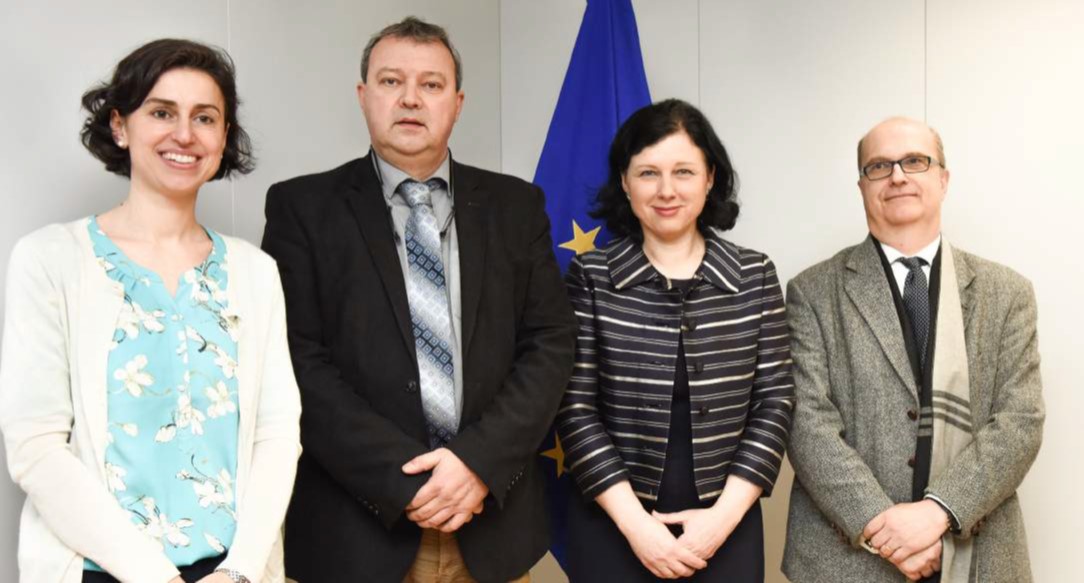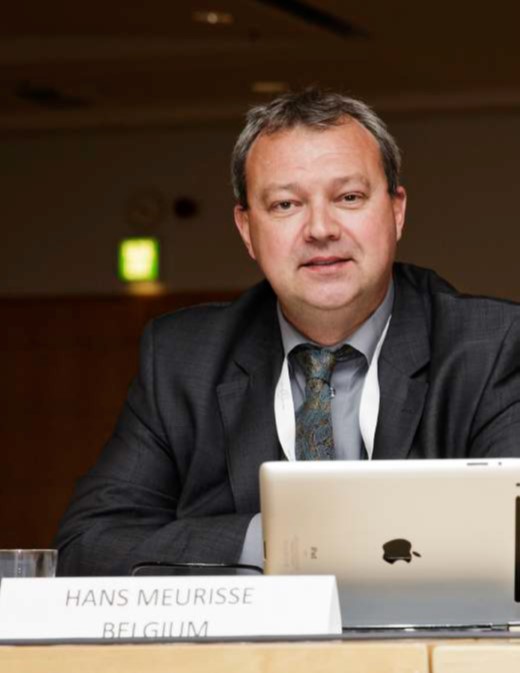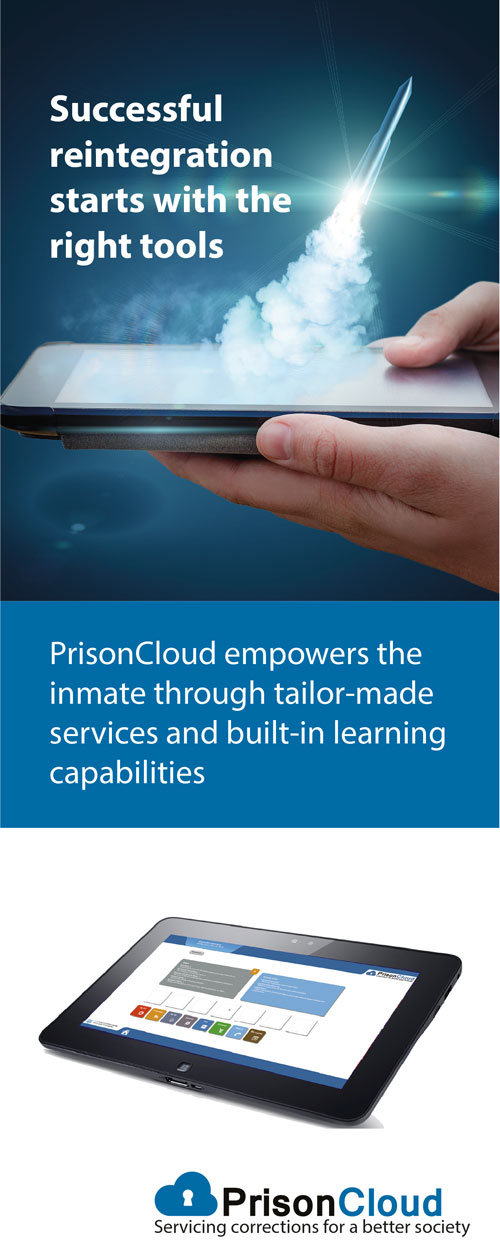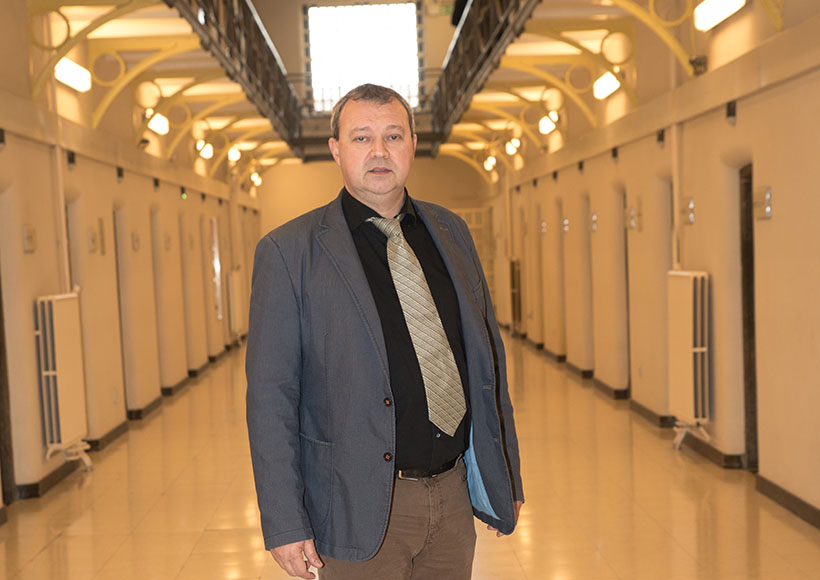// Interview: Hans Meurisse
Director-General of the Belgium Prison Service & President of EuroPris*
JT: Can you briefly explain how EuroPris idea has moved from paper to the structure that is currently known?
HM: At the beginning of 2008, we were lucky to have a group of dedicated general directors who had a very good relationship between them and who were eager to share and learn about what was going on in prisons in Europe.
Besides that, we had seen that in the European environment there already representative structures such as Europol for the police services, Eurojust for the magistrates, and CEP for the probation services. What was missing – and it was very bizarre – was that an organisation that could serve as a collaborative platform for the penitentiary practitioners.
That would allow them to work together on practical issues at the European level. Prisons are a specific field – in French, we say “métier” – it’s very typical, something with a kind of network and workflow that is quite different from other businesses. Moreover, the execution of sentences is always at the last stage of what we call the justice chain.
f course, the Council of Europe had an interest in prisons through its particular bodies – like CPT and others, but in 2009, during the EU presidency of Sweden when we joined in a roundtable in Uppsala (twice a year the 10 directors–general of prisons from the northern hemisphere meet each other), we started to draft some possible themes and schedules to work together.
So, from 2009 to October 2011, it was our constitution period… We meet in Edinburgh to create EuroPris, and then, in 2012, in Rome, we decided to have an annual general meeting… We’ve now been around for 5 years. Our main goal was to work on themes that were useful to our daily life – for inmates, for staff, and for management.
This was the main drive for EuroPris. It was not to stay on a high theoretical level – we don’t need that – we didn’t want to shape new rules, we didn’t want to shape new legislation.
We just wanted to interact with each other and make clear to everybody how things work, what works, from that bottom-up approach and maybe influencing policymakers in an indirect way. I think that until today if you see what we’ve accomplished, it has been a big, big, success.
JT: What were the main challenges that you had to overcome during the lifetime of EuroPris so far?
HM: First, we had to form a basic structure and needed some funding for it… We were able to get the basic funding from the European Commission. The European Commission saw immediately the advantage of such an organisation.
There was, of course, a lot of involvement from us, personally, as we dedicated much of our spare time to it, in the first stage, but also providing some in-kind contribution. People from 5-6 administrations came together and succeed to reach a good structure, statuses, etc.
The first two years were a struggle to create what we call the formal environment of EuroPris. We didn’t want to lose too much time to prove our added value, so we immediately focused on two or three main goals that were of utmost importance and also urgent in our view. One of these was the huge presence of non-nationals from different EU countries in our prisons.
The European Commission supported it from the beginning as it working at the time on a green paper around the framework decisions: how to recognize the sentences and transfer inmates from one jurisdiction to another – to serve sentence in their own country.
After that, we started to work around other topics. Prison regime, housing, and logistics, how to build new prisons were the main goals. Afterwards, other themes came, such as the use of technology in prisons or radicalisation (a current concern). But in the beginning, it was all about our core business.

From left to right: Daria Nashat, Hans Meurisse, Vĕra Jourová, and Marc Cerón
JT: EuroPris involves a very big diversity of countries with different economic performances, different perspectives and maturity levels of their prison systems and there’s the Brexit.
What are the main challenges that prison systems are presently facing, in Europe?
HM: The fact that the United Kingdom may leave the EU will not have a big impact. As you know, the UK was out of the European Justice programme already. It is important to say that we wanted to treat everybody on the same level, be it a small country or a big country.
Any country has the equal possibility to become a EuroPris member, as long as they belong to the EU or related states like Norway. We decided that every jurisdiction should contribute with a few thousand Euros… the big ones paying €7.500 and the smaller ones paying €3.000 a year. In that way, we made it accessible to everybody.
Also important is that we provide an immediate return on investment. Whenever we organize conferences, EuroPris pays for its members’ flights and accommodation, so that they can easily have access to them. Besides the accessibility – which was one of our main concerns – we needed a very good website.
We were congratulated by the European Commission on the EuroPris website. It is much more than a website. It is a document and a knowledge-sharing system where you can find very interesting information on different issues. We created a truly European Union Prison Information System, where you can easily access numbers from other countries, and get information about prisons in other countries.
We work in an environment where the execution of sentences is becoming much closer. Everybody is talking about European standard rules, the United Nations’ standard rules, Mandela’s rules, and how to execute them in daily life.
We exchange our information on an open platform so that we don’t have to reinvent the wheel again, and again and again. We simply exchange information without any limits from one country to another (this includes information on what works and does not work, tender documents and requirements, etc.).
We also have a process to deal with confidential information that cannot be shared openly like measures against radicalisation or terrorism, is an example.
JT: How do you see EuroPris evolving as an organisation?
HM: Currently we count 30 members and we are becoming more and more professional. We will become, a network-related organization that works based on common themes.
We have 7 to 8 big themes that are really important to our business and have expert groups that meet once or twice a year to discuss these and share their knowledge. Our knowledge management and information system will become more and more important – you can put a question online and within a few days, you have 10 to 12 countries answering it. It is all about knowledge sharing and knowledge creation.
Traditionally it was all about the police, it was all about the magistrates… With the creation of EuroPris we became – at a higher–level in Europe but also at national and regional levels – a respected partner that contributes and is listened to. A partner that that is not waiting to execute but that interacts and influences policy.
The Commission relies on us as a partner that is capable to represent and involve different prison administrations in the member states, even if some countries are not yet EuroPris members.
JT: How is the relationship between EuroPris and the European Commission? Is EuroPris recognised as a reliable and valuable partner before the European Commission, does it influence any new policies?
HM: I would say even more than that. EuroPris has become a partner with a “unique selling position” as we represent most EU countries. The Commission relies on us as a partner that is capable to represent and involve different prison administrations in the member states, even if some countries are not yet EuroPris members (as Greece, Poland or Hungary as examples).
When we applied for an EU grant for the first time, we got the funding for one year. The next application allowed us to be supported for the duration of three or four years. I think this is proof of trust in the work we do as an organisation. EuroPris is invited to high-level meetings (me as president, the executive director or one of the general directors).
The European Commission sees what I like to call an operational strike, or force to move some things in the direction that everybody wants to go. Before EuroPris this was not possible. Now it is very easy to interact with and that is what the European Commission appreciates. I think.
Last but not least, there is our knowledge of the business… it’s totally different. We are civil servants but “we have been with our shoes in the mud”, we have always strived to find solutions, on a daily basis. I have to say that there is a big respect for what we do.
JT: You are recognised as someone that plans the future ahead and you brought development through master planning, so we’re talking about long-term thinking in your prison system. You have prepared for the digital transformation in prisons and you have innovative projects in that area also, in the area of inmates’ rehabilitation.
What do you think the main challenges for the future will be? And on the other hand, how could EuroPris support the changes?
HM: A lot of prison services in Europe share the same difficulties concerning their infrastructure. Their infrastructure is dated from ages ago, from the 19th century many times. The fact is that the financial resources involved are huge.
Regarding challenges: how can we support the change in an evidence-based way? How can technology be used dynamically and complementary to the traditional custodial way of working?
We are going much more in what we call community corrections oriented direction, with alternatives like fines, electronic monitoring, like all kinds of alternatives to imprisonment.



We need to be able to set the marks from where we will go, what the issues are… The required cultural change is maybe the most important one. Everybody has their own system – of course, they can be very different from one to another – but the cultural change related to how to behave like a modern administration…
Today there are still countries that are very resistant to certain things like inmate-family relations. In England, you can’t have what we call separate visits with your partner… And there is also the communications issue: those youngsters who come into our prisons are digital natives! How do we deal with them?
So, what are the issues in other countries…? For example, a country which is considered to be more advanced than others in many aspects – like Norway –, but inmates can only have one phone call a week, fifteen minutes! And then those 15 minutes are listened to from the first to the last second. This is very bizarre!
Labour, prison work: what is the issue? How would you keep prisoners busy? What is the purpose of it? Learning is another issue: for example, if a given [foreign] inmate is in a Belgian prison, how can we give him access to e-learning programmes from his country while he is imprisoned in Belgium?
Recently we had an important discussion for the future regarding the E-Justice Codex Procedure. We will start to exchange basic information between two prison systems in order to support the transfer of inmates from one country to another so that inmates understand what his/her future will be. Because if you don’t [get that message through], there will be a lot of frustration…
And the whole issue about security…What is security? For example, ICT and logistics are more and more integrated… How do we deal with that? What is the impact on your internal organization? Do you need an ICT department? Or do you need a logistics, security and technology department, for example? These are features that are going very fast nowadays, very, very, fast… And I think we need to be not so defensive.
JT: You mentioned some of the limitations regarding the Justice Policy also, and the fact that the UK was not involved in the EU Justice Programme. So, the European Commission has some limitations also in terms of the justice policies, and programs to support prison reforms. What do you think that could be changed in that view? And if you think there should be some funding instruments to support the justice reform, from the European side, as we know that there’s a huge limitation on that particular topic since from the beginning, it was not considered like other areas such as Health or Education? Hence, Justice has a very peculiar situation in the European policy landscape.
So, do you think that something should be further done in that area?
HM: There are two important things: the first is that in ten years, when I will be looking back to what happened, I hope to say, that this was the beginning of a European Prison Service, that is really having an impact on how people are treated in prisons, and that has contributed to making things much more efficient. That is our biggest goal…
Well, maybe European is not the word… we could say Continental… as we have to look to the whole region. People who are deprived of liberty should have basic identical ways of serving their sentence. This would be the biggest accomplishment.
And the second one is that we have seen that other areas such as education or labour are very influential. So, now, for the first time, we are starting the discussion with the education sector to see how educational leverage can be organized throughout the prison system.
Those are, for me, the two main goals: see how we can bottom-up, and make sure that European legislation integrates education and works in the process flow within prison settings. But, therefore, and this is the third one – and I know it’s always the same, it’s one of my favourites – we have to see how we can communicate with each other and this is why we have our website and knowledge management system. We will be able to share data regarding prison issues at the European level, as it is done nowadays for Police issues.
There are some challenges. As you know, in some countries, director generals are DG from prisons and probation. In my country, it was decided to split the two areas 15 years ago. I don’t know if that was a good decision, but I am sure that those two services – probation and prisons – will become more and more integrated, and we have to find a way to organize that on a good basis.
//
Hans Meurisse is the Director-General of the Belgian Prison Service and the President of EuroPris. He studied Criminology in Ghent and participated in several post-graduate courses, which allowed him to gain profound knowledge of public and penitentiary management. He is also a member of the directors’ board of the International Corrections and Prisons Association (ICPA).
*At the time of the interview, in May 2017.
Advertisement





